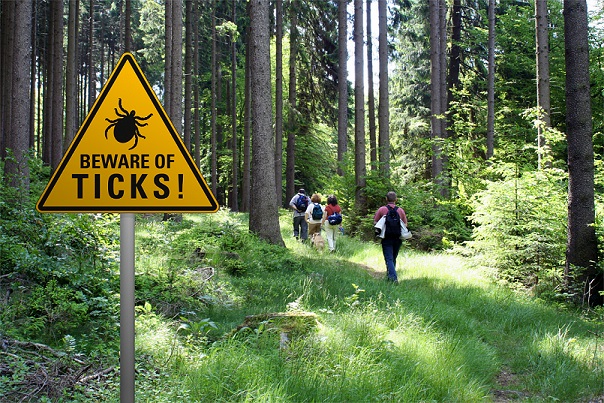They’re Back! Why You Should Be on the Lookout For Tick This Spring.

Spring weather is here, at least for the moment. Heading outside for a hike? Don’t forget to check for ticks! Ticks, in the spring!? Absolutely. Generally speaking ticks stay dormant in temperatures below 35 degree but with the spring like temperatures that we have been having there have been plenty of warm days that could bring ticks out in search of food. Deer ticks especially can be found year round.
Just as you do in summer months, if you find yourself heading outdoors whether walking your dog or just getting some fresh air, use tick repellant, wear long pants and do a thorough check for ticks when you get home.
If the thought of ticks gives you the creeps, we’ve compiled some tips for helping you, your families and your pets stay tick bite free.
•Ticks are more prevalent in tall grass and wooded areas inhabited by large animals like deer. When hiking through the woods, walk on the center of paths rather than the outer edges when possible.
•Dress in long sleeves and pants. Tuck your pants into socks, especially if you are walking through an area of tall grass without a designated path.
•Always check your clothes and self for ticks once you’re done hiking and after you come indoors. If you are concerned there may be ticks in your clothing, tumble dry clothes on high in the dryer for 10 minutes to kill any hiding ticks. The Center for Disease Control recommends taking a shower within 2 hours of coming in from areas likely to have ticks. Washing off ticks before they become attached is a great way to avoid Lyme disease.
•You can also reduce the chances of ticks being in your yard by removing plants that attract known tick carriers, such as deer and mice. Avoid leaving piles of leaves in your yard, and keep grass cut short.For more information about avoiding ticks and tick bites, go to
•https://www.cdc.gov/features/stopticks.
•If you find an attached tick, remove it with tweezers as close to the skin as possible and watch for any fevers or rashes that might develop.
